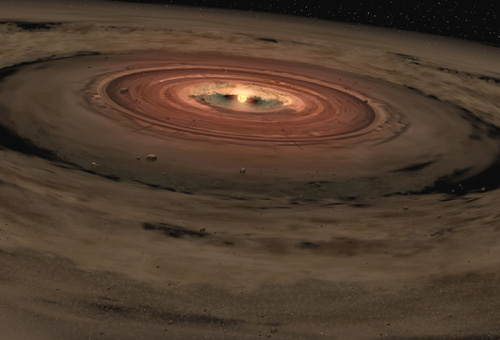accretion disk

Protoplanetary accretion disk.
An accretion disk is a rotating disk of gas and dust that may form around any of a variety of stars or other massive objects. In the case of young stars, accretion disks contain unconsolidated material, such as cosmic dust grains, which may subsequently accrete to form planets and other sizable objects (see planetary systems, formation).
Accretion disks have been observed, or theorized to exist, in association with protostars, T Tauri stars, and other very young stars, Vega-type stars, and many interacting binary systems, including U Geminorum stars, novae, symbiotic stars, and W Serpentis stars, in which the secondary component is losing matter to the primary. They are also believed to occur commonly around black holes, including stellar black holes in close binary systems and supermassive black holes at the centers of some galaxies. In the latter case, accretion disks are thought to play a crucial role in the active galactic nucleus phenomenon.


